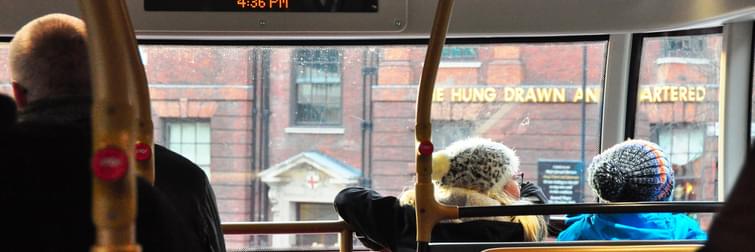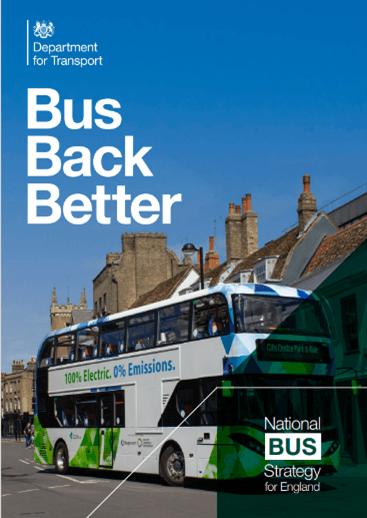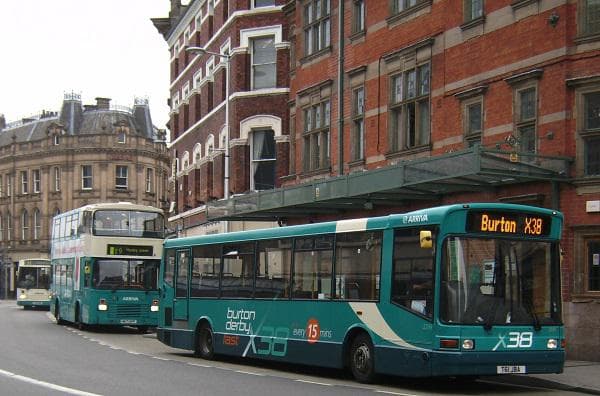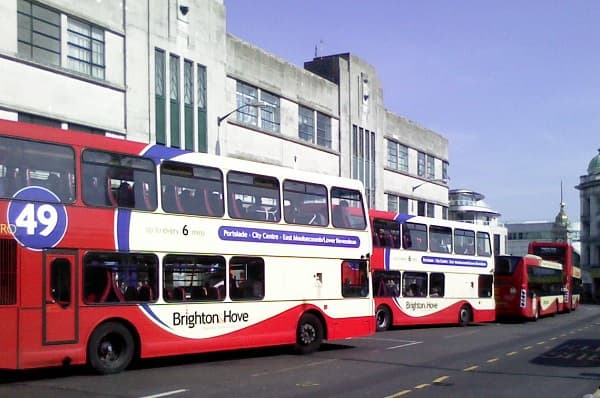
blog: Post-Pandemic Partnerships – Can They Deliver Bus Back Better?
Thursday 17th February 2022
‘Bus Back Better’ - the long awaited National Bus Strategy- promised a revolution in bus services. The Strategy required all Local Transport Authorities (LTAs) to publish a Bus Service Improvement Plan (BSIP), and establish an Enhanced Partnership (EP), or a franchising scheme, to deliver them, in order to be eligible for Government funding to support improvements to the bus network.

ITP was commissioned by 12 LTAs to assist in the development of their BSIPs; working closely with these LTAs and their local bus operators we prepared ambitious and aspirational BSIPs which met the challenging timescales set by DfT. The 12 LTAs included:
- urban authorities with enviable track records in delivery of bus service improvements
- new unitary authorities with considerable scope to influence wider, non-bus policy making
- authorities preparing cross-boundary BSIPs
- combined authorities which were already actively considering new bus service delivery models
- county councils whose bus networks are at best borderline commercial and at worst fully supported.
How did operators find it?
Following a concerted, collaborative effort, all 12 LTAs published their BSIPs by the October 2021 deadline. Given that for over 35 years, transport legislation has permitted operators to compete with one another to provide services, working in partnership was unprecedented for many.
Regardless of operator size there were a multitude of challenges in contributing to the development of BSIPs: both large and small operators found internal resourcing a burden, paired with the difficulties in understanding confusing and overly legalistic language. Operators with cross-boundary services faced the additional prospect of signing up to multiple BSIPs which may not be complementary. Devoting time to the process was even more challenging in the face of tackling driver shortages and increasing costs.
BSIPs to EPs
Immediately after publishing BSIPs, LTAs were thrust into preparing an EP Plan to formalise the vision for bus and establish the working relationship between LTAs and operators, alongside developing an EP Scheme(s) to commence delivery of the BSIP. Whilst most operators were open minded regarding the solutions to benefit their passengers, they were expected to agree to an EP Plan and Scheme with no indication of the level of funding the DfT would provide to help deliver them.

During the BSIP preparation process, the original £3bn promised for local bus transformation, which already paled in comparison to the £27.4bn awarded to invest in strategic road networks, reduced to £1.4bn, which is to also include funding for zero emission bus schemes, Covid-related funding has been deducted from the original £3bn, despite over £10bn being provided to support passenger rail services in England through the pandemic and TfL receiving over £1bn of Covid funding support.
Against this precarious funding backdrop, LTAs and operators tended to initially select EP Schemes committing them to low cost, easy to deliver schemes, like developing a passenger charter. However, schemes like simplifying ticketing, which originally seem straightforward, proved tricky for operators and LTAs to commit to within the short timeframe allowed to develop the proposals in sufficient detail; this was particularly difficult for operators of cross-boundary services.
Whilst timelines for LTAs to publish a draft EP Scheme have been extended, most had initiated the operator objection mechanism and consultation phase on their original EP Plan and Scheme, leaving them in a catch 22 position.
Is bus priority the first priority?
The National Bus Strategy prioritises bus priority, however not all LTAs deemed it so important for improving bus services. In many areas, particularly rural, operators are struggling to operate any service on a commercial basis. In January 2021, Baroness Vere announced that Bus Recovery Grant (BRG) will cease at the end of March 2022 - the DfT is currently trying to persuade the treasury to keep the funding going into the next financial year, but there are no guarantees.
Although the DfT is still assessing the BSIPs, it is known that the funding requested to deliver all BSIP measures outstrips what is available, suggesting some LTAs will receive little to no funding. It is rumoured that the DfT will prioritise BSIP funding for bus priority schemes, and will focus more on capital investment. This could lead to transformative improvements in urban areas, but in many areas bus services are struggling to survive and are in need of revenue support. Recovery funding was (and hopefully will be) provided to support operators until patronage returns to pre-Covid levels, but often, services were borderline surviving at pre-Covid levels, and with rising operational costs and lower National Concessionary Travel Scheme funding, getting back to the pre-Covid position will not be sufficient to abate the existential risk of network wide withdrawal of services.
Enhanced – or Enforced – Partnerships?
Our experience working with 12 Enhanced Partnerships has been that LTAs and operators have entered into the spirit of partnership to deliver BSIPs on time - whether willingly or to avoid the threat of losing eligibility for Bus Service Operators Grant (BSOG) funding. With the promise of funding to focus the mind, the process of partnership working has helped break barriers and has enhanced or resurrected relationships, building trust and understanding.
Whilst there have been some early BSIP funding beneficiaries named as part of the Levelling Up white paper, many BSIP bids are still under review and the indicative funding announcements, due soon, are likely to strongly influence whether LTA and operator partnerships will survive long term and without funding for schemes, partnerships may very quickly go from enhanced to enforced. Consequently, we are working with a couple of LTAs to explore whether franchising is a feasible solution.
What next for EPs?
Tight timescales and the promise of financial support for improvements have resulted in the publication of some ambitious and aspirational BSIPs prepared by newly-formed partnerships. Here at ITP, we remain hopeful that transformative bus service improvements will be delivered following the dark days of the pandemic. We firmly believe that by working together, authorities and bus operators can make a tangible difference for bus passengers, and we will continue to work closely with the partnerships to help them fully maximise their BSIPs, whatever the funding award.

Find out more about ITP’s work in delivering Bus Service Reforms, or contact Denise Faber for information on how we can support the implementation of, or assess the impact of, measures set out in the BSIPs.
